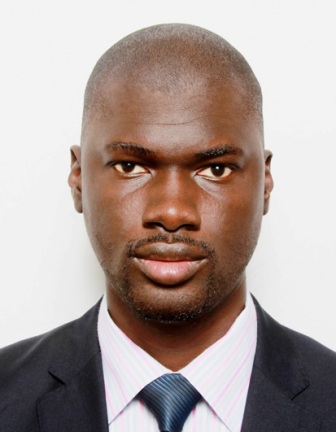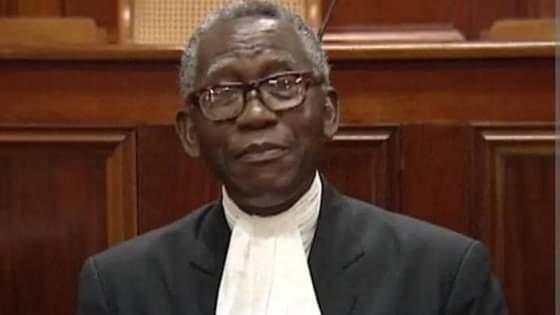Absconding jurors: one more reason for criminal justice reform in Sierra Leone
Newspaper reports that a high court judge ordered bench warrants for 93 absentee jurors focused my attention once more on the issue of criminal justice reform in the country. With the help of international partners, particularly the United Kingdom government, Sierra Leone has slowly been rebuilding destroyed justice sector infrastructure nation-wide. Court buildings and police stations have sprung up in a number of rural outposts, even though there are not enough personnel to run them on a permanent basis. In Freetown, a new court building to the east, and another abutting the main prison at Pademba Road, have been constructed. (Photo: Sonkita Conteh, author)
Several new laws have also been enacted including a Legal Aid Act which provides for a yet-to-be-implemented but potentially progressive national legal aid scheme for indigent persons; a Local Courts Act which reorganises and repositions local courts within the Judiciary and most recently, a sexual offences law which overhauled centuries old laws on sexual violence. A review of the Criminal Procedure Act 1965 has been on-going for the past 3 years. That process has been criticised for not being very participatory.
The Judiciary has also rolled out a number of fire brigade ‘innovations’ to try to shore in some of the more intransigent problems. These include Saturday Courts which focus on the prosecution of increasing numbers of sexual and gender-based violence cases, backlog courts to help reverse the huge stockpile of stagnating criminal cases and itinerant courts in rural areas to help offset the absence of permanent magistracies in many districts.
Yet, despite this mix of policy and operational patchwork, many agree that pre-war justice challenges still persist. Some have even argued that they have exacerbated over time. There is a growing lack of public confidence in the judiciary to dispense speedy, fair and impartial justice. Allegations of corruption, abuse of authority, favouritism and cronyism abound.
Even within the judicial rank, disillusion seems to be growing, particularly with magistrates. Some feel deliberately under-utilised probably because they are not perceived as compliant with the infamous “instruction from above” dictum.
Other criminal justice institutions such as the police and prisons have not escaped scathing criticisms for unprofessionalism, abuse of power, corruption or some other equally serious ill. Police cells, prisons and other detention facilities are teeming with inmates who are awaiting trial. Current levels of congestion make mockery of massive decongestion efforts by non-governmental institutions like the Pilot National Legal Aid Scheme and the Bar Association’s legal aid scheme. Two years ago, these two initiatives succeeded in getting thousands out of detention. However, the prisons are packed to the rafters today.
The case of the absconding jurors clearly highlights the need for real reform in the criminal justice system, over and beyond brick work or emergency damage control interventions. Truth be told, the judiciary itself has not shown serious appetite for reform of its processes and practices to adequately meet the justice demands of the nation. Decision-makers have preferred to address symptoms rather than root causes of dysfunction within the system. Even when it becomes obvious that urgent and far-reaching changes are needed, the approach has been one of lengthy pussyfooting followed by some cosmetic tinkering which unravels within a short time.
The issue of jurors not turning up for trials is certainly not new. Jurors have been responsible for extensive delays in many criminal trials resulting in accused persons being held in pre-trial detention for long periods. Victims or their families do not also get the closure that they deserve and often lose track of matters completely. On any given day the absence of 93 jurors would mean at the very least, no progress in 8 trials. The high court judge must have been very irate at such massive truancy and felt compelled to send a message.
With few exceptions, jury service is mandatory for anyone residing in Sierra Leone, who is between 30 and 60 years and literate in English. Trial by jury, arguably not a constitutionally protected right, is one of two ways in which the high court may be constituted for business. The Criminal Procedure Act 1965 provides for trial by jury in the High Court for offences punishable by death. Murder, treason and robbery with aggravation are all offences punishable by death. The application of this provision has clearly been detrimental to the fair hearing rights of accused persons. Section 23 (1) of the Constitution stipulates that anyone charged with a criminal offence should be given a fair hearing within a reasonable time. Trial by jury, as we have had it, has consistently breached this provision.
Jurors themselves have their own quarrel with the system. Many claim that they often waste valuable time in court as matters do not often proceed on time or at all. They also argue that jury service is financially burdensome as they personally meet their transport costs to and from court sessions. Whatever cost refund is allocated to them is either not received at all, very paltry and often long delayed. A number of jurors have complained about serving in more than one case at a time. Some who are employed in the public service believe they were volunteered by their bosses as a form of punishment. They would rather be elsewhere than in court.
So, why have we doggedly kept faith with jury trials, using the same script since 1965 and having more or less the same result every time? Trial by jury or by “one’s peers” is an important pillar of the common law system. Developed over several hundred years, it is a legal process that allows a group of ordinary people to decide whether they believe the accused’s version of the case or the prosecutor’s. As a process, jury trial has its merits. In our context however, it seems to be doing more harm than good.
In fairness to the judge, ordering bench warrants might have been the only course open to her. But that action exemplifies a pattern- addressing the symptoms of the malaise rather than the root causes. Will errant jurors suddenly become good and start attending court regularly because of the judge’s order? I think not. In fact, it might send a negative message to existing and potential jurors- jury service is a pain, do your best to stay out. Will the judiciary suddenly become better at managing the jury system? I also think not. They have had 49 years to do that and failed. To guarantee justice for both accused persons and victims, trial by jury should be excised from our current criminal process. In fact, there are many things we need to delete from our criminal justice process and our justice system generally to make justice work for everyone. The review process is a golden opportunity to make some real changes in our criminal justice system. But are those leading it brave enough?
By Sonkita Conteh Esq., Director, Namati Sierra Leone
Stay with Sierra Express Media, for your trusted place in news!
© 2014, https:. All rights reserved.






